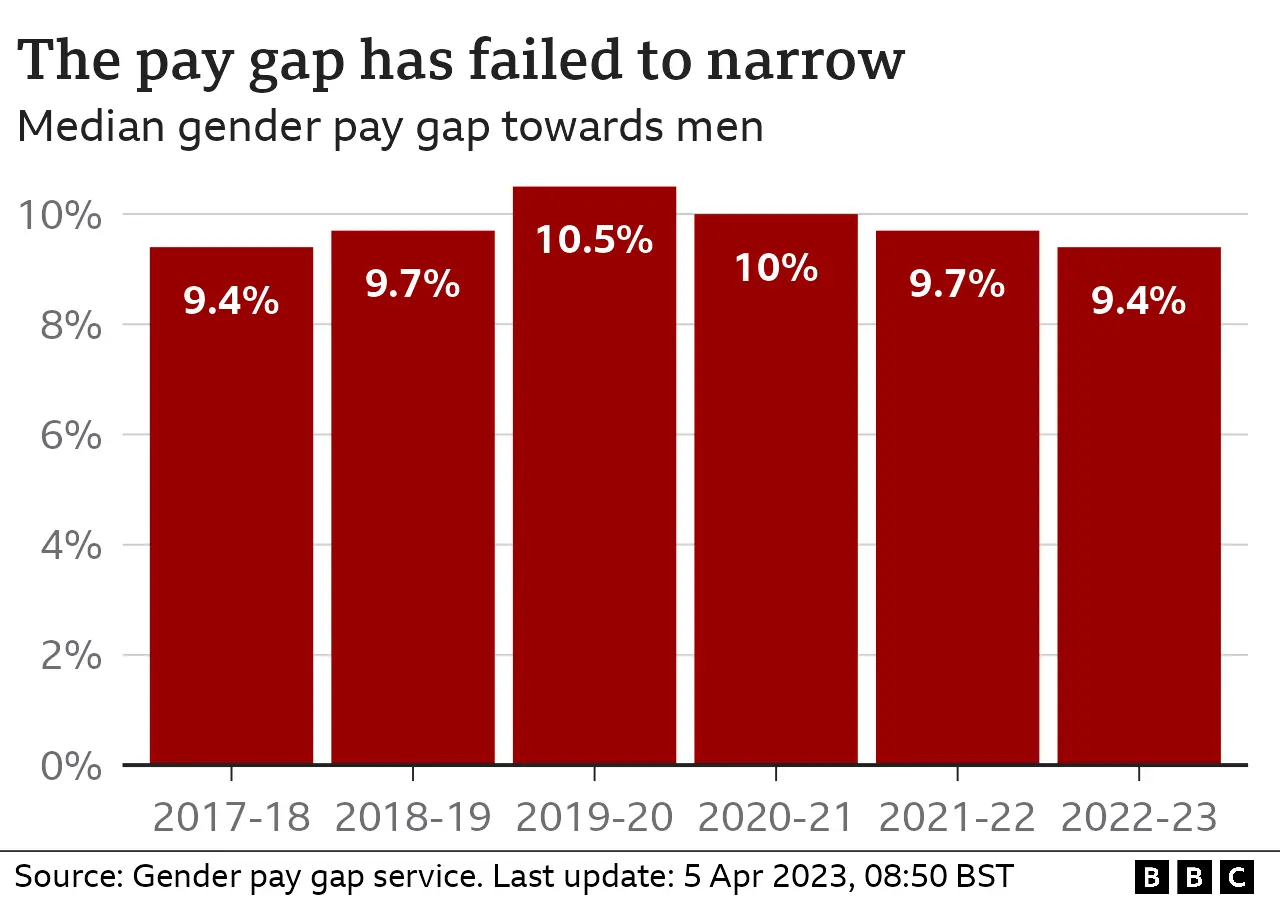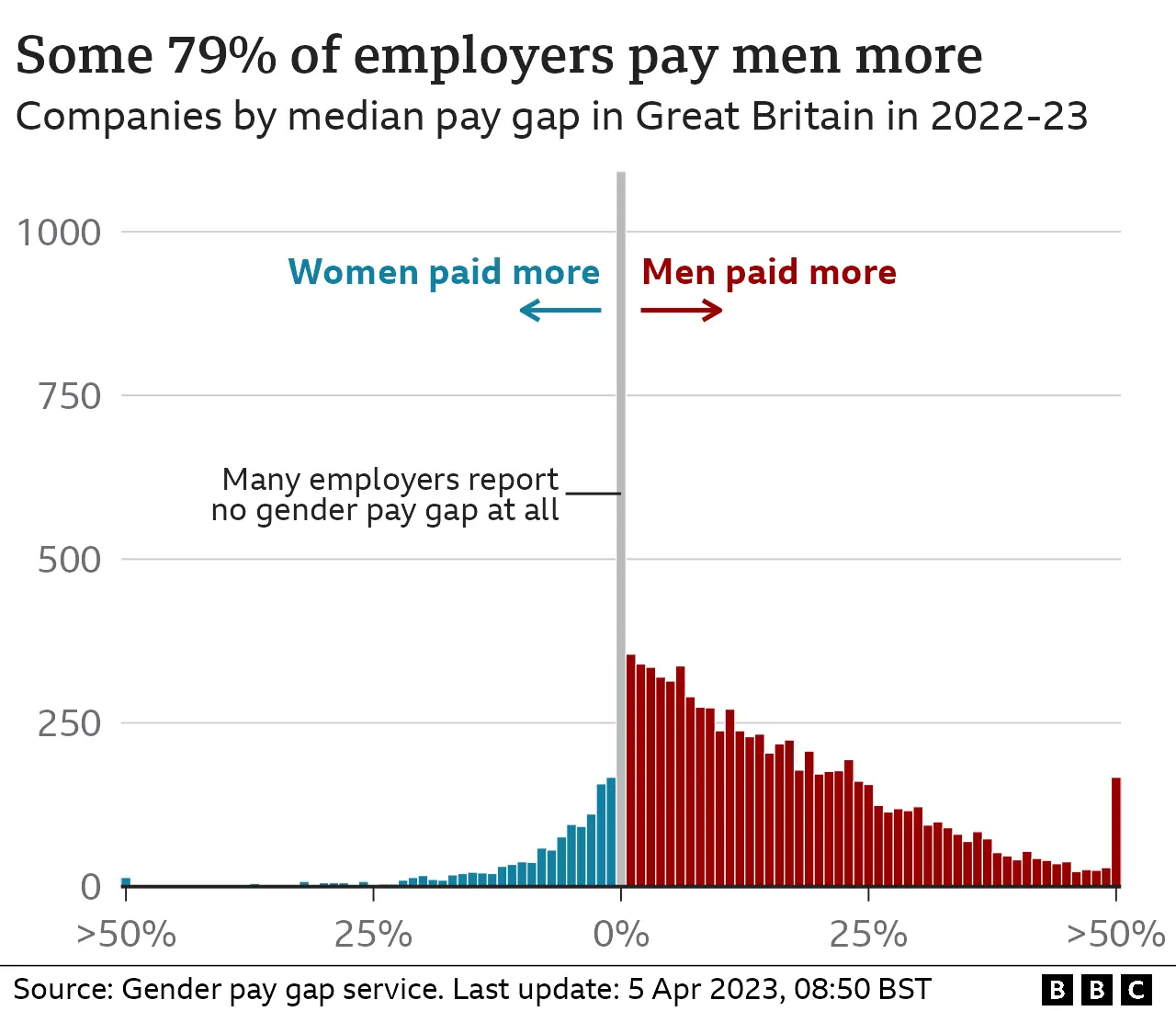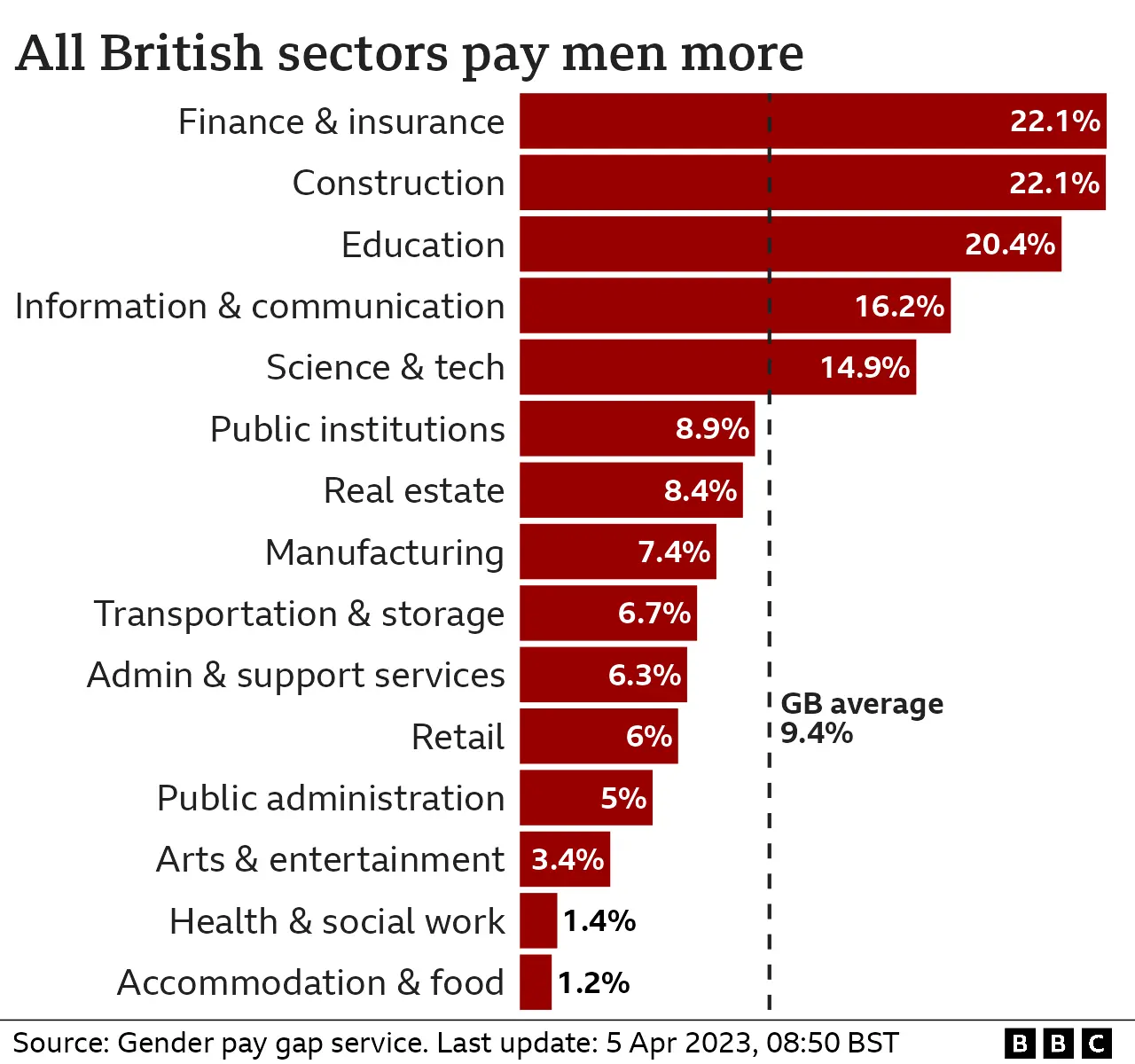Eight out of ten firms pay men more than women
 Getty Images
Getty ImagesMen still earn more than women, according to data gathered by the BBC.
Despite a continued push for equality, the wage difference is still 9.4%, the same level as in 2017/18 when companies were first required to publish figures.
The data is based on the difference in pay between the middle-ranking woman and the middle-ranking man, the so-called "median" pay gap.
This is different to unequal pay - paying women less for the same work - which is illegal.
By law, companies, charities and public sector departments of 250 employees or more must publish their gender pay gap figures on the Gender Pay Gap Service website.
It is part of a government initiative to force businesses to be more transparent about pay. By Wednesday morning, 10,217 employers had reported.
Romi Savova, chief executive of pension provider PensionBee, said that the latest data was "bad news" and it was "pretty astounding" that the gender pay gap remained at the same level compared to five years ago.
Ms Savova told the BBC's Today programme that the "main culprit" for the difference was that major corporations were setting "unambitious targets" for getting women into senior positions.
"You can look around many rooms and still see that they are unequally filled and unequally represented," she said.

Banking and finance remain among the worst offenders, with women earning, on average, 22.1% less than their male colleagues.
The industry has narrowed the gap by just 0.4 percentage points compared with five years ago.

The construction sector, meanwhile, narrowed the gap by 2.6 percentage points, but it remained highly unequal, with the average woman earning 78p for each £1 earned by a man.
There are some businesses that pay women more than men including Airbus Operations (17.7%), Azebra Pay (16.9%) and DHL Services (12%).

But for many sectors, the gender pay gap has continued to widen.
For example, in education, it increased by 0.8 percentage points.
Jemima Olchawski, chief executive at the Fawcett Society, said all employers needed to create an action plan which set out how they will improve gender equality in their workplace.
"Reporting is a good way of identifying pay inequalities, but taking action is key," she said.
Large businesses that have some of the widest gaps in pay between men and women include Easyjet, Lloyds Bank division and Savills.
At Easyjet, despite an improvement from last year, the average woman takes home just 53p for every £1 earned by men.
Mona Abdelatti, a pilot for Easyjet, said that part of the challenge is more men than women are interested in professions like hers.
"For most people when they see a female pilot, it's like a huge deal," she said.
She acknowledged the training was an investment: "What I would say is that unless you love it, don't make the investment, just because it is so much money."

Five tips when asking for a pay rise:
1. Choose the right time - Scheduling a talk in advance telling your boss it's about pay means you're more likely to have a productive conversation.
2. Bring evidence - Be clear about what you've achieved to deserve a rise and what you want to do next.
3. Be confident - Know your worth and try to ignore stigma around pay conversations. Ask a mentor for advice.
4. Have a figure in mind - Look at what salaries other comparable jobs are being advertised with and be realistic.
5. Don't give up - If it's a "no" this time, keep the conversation open '- can you negotiate more holiday or flexibility?
Read more tips from careers experts here.

Additional data analysis by Becky Dale and Maryam Ahmed
